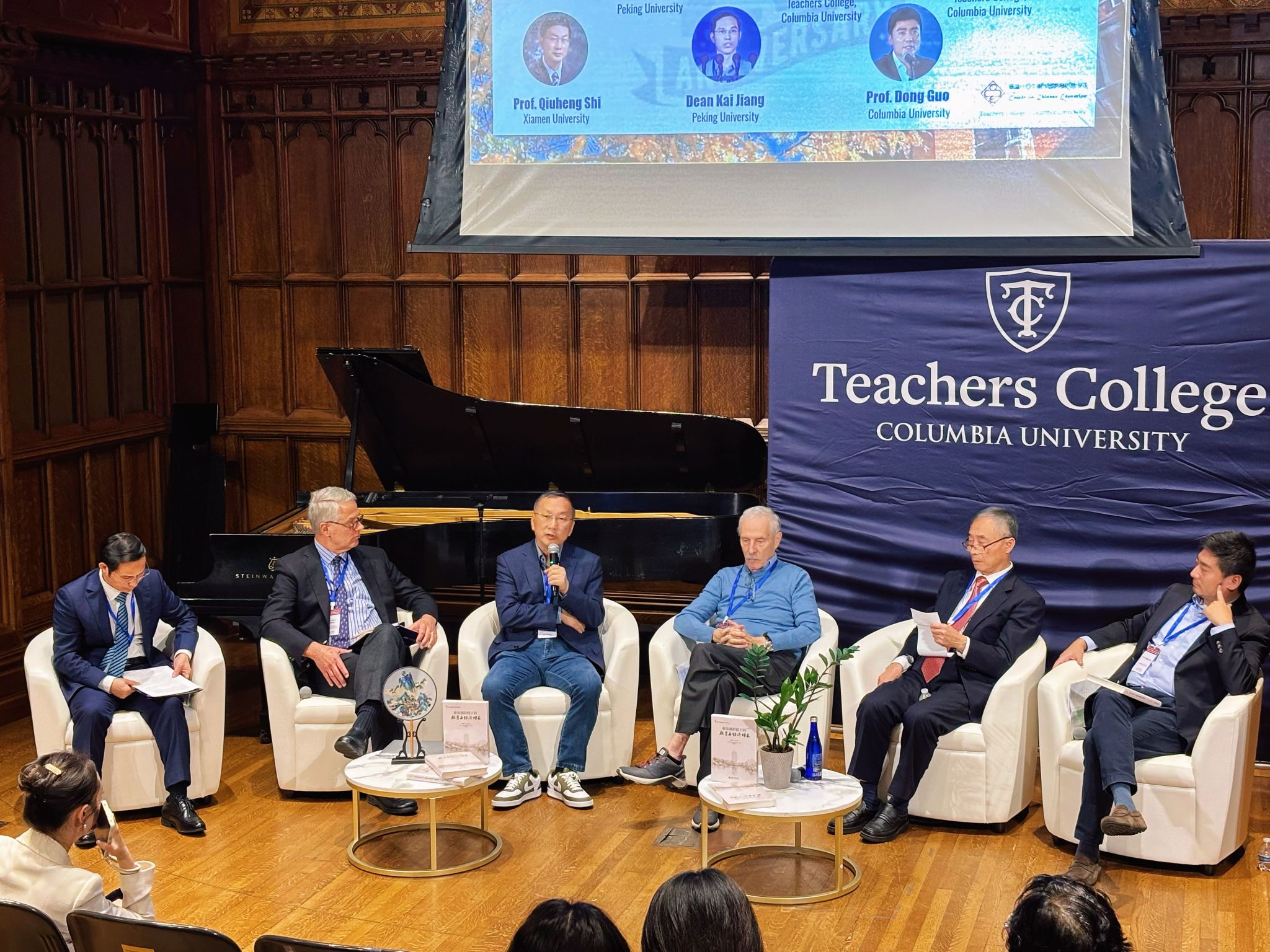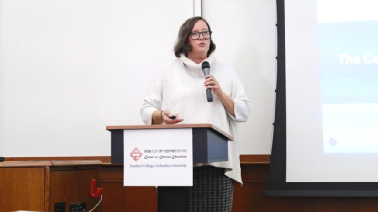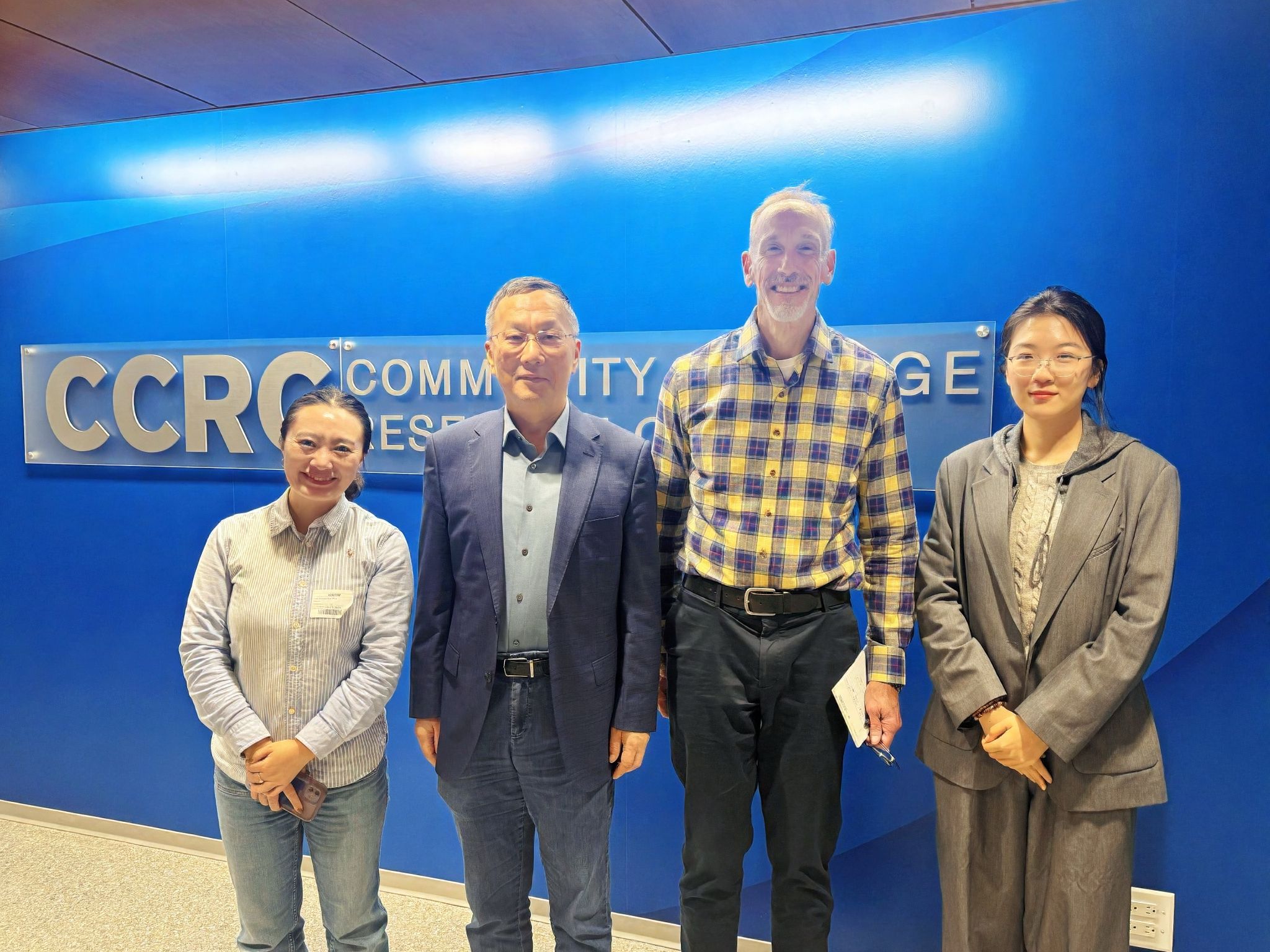From October 13 to 19, 2025, a delegation consisting of Professor Shi Qiuheng (Director of the Institute of Higher Education Quality Assurance and Evaluation at Xiamen University), Associate Professor Wen Jing (Deputy Director of the aforementioned institute), and Ph.D. candidates Xu Yang and Sun Xinyan from the Institute of Education of Xiamen University visited Columbia University in the United States for academic exchanges. They systematically showcased the cutting-edge achievements of Chinese higher education research and engaged in in-depth dialogues with internationally renowned universities and authoritative scholars.

Professor Shi Qiuheng Attended a High-Level Roundtable Dialogue to Jointly Explore New Paths for International Education Development
On October 13, the 25th anniversary celebration of the Center on Chinese Education (CoCE) at Columbia University was launched. At the roundtable forum themed "Education and National Development from an International Perspective" held in the afternoon of the same day, Professor Shi Qiuheng conducted in-depth discussions on key topics including comparative education, educational economics, and higher education governance with renowned Chinese and American scholars—such as Professor Henry Levin, Professor Mike Johanek, and Professor Guo Dong from Columbia University, as well as Professor Min Weifang and Professor Jiang Kai from Peking University. During the dialogue, Professor Shi Qiuheng, drawing on the practices of Chinese higher education development and the findings of his research projects, proposed that the optimization of higher education governance structures must be rooted in the country’s institutional context. He also shared China’s experience in the transformation of universities from hierarchical management to classified development.



Participated in Thematic Seminars to Present Cutting-Edge Achievements of Chinese Higher Education Research from Multiple Dimensions
On the afternoon of October 14, a thematic seminar titled "The Connection and Construction of Education, Science and Technology, and Talent" was held. The seminar was chaired by Professor Cheng Henan, Executive Director of the Center on Chinese Education at Columbia University, with Professor Roberta Kang (Director of The Center for the Professional Education of Teachers, CPET) serving as the discussant. Members of Professor Shi Qiuheng’s team delivered their reports in sequence.

Professor Shi Qiuheng delivered a keynote report entitled "The Connection and Composition among Education, Science, Technology, and Talent". The report conducted an in-depth analysis of the coupling relationship and collaborative mechanism among education, science and technology, and talent, and systematically sorted out the policy evolution and practical effects of China’s higher education governance transition from a hierarchical model to a classified one. By integrating the development trends of international higher education, the report emphasized that universities should return to their core functions of teaching, scientific research, and social services. It also pointed out that the social services of Chinese universities have now achieved a strategic transformation from "passive response" to "active construction"—the expansion of service scenarios and the establishment of cooperative networks are being systematically incorporated into universities’ strategic planning and performance evaluation systems, providing practical guidance for higher education to empower national innovative development.

Associate Professor Wen Jing delivered a keynote report titled "The Paradigm Transmission of Learning Quality in College Students: Theory Exploration and Empirical Evidence". The report focused on revealing the evolutionary laws of the paradigm of college students’ learning quality, emphasized the transformation of the quality concept centered on students’ lifelong learning and ability development, and systematically explained the mechanism by which college learning experiences influence students’ growth from dimensions including learning objectives, learning content, learning methods, and learning evaluation. It aimed to provide both theoretical and practical basis for the teaching reform of higher education.

Ph.D. candidate Xu Yang, focusing on research into the learning status of engineering majors, delivered a report titled "Unpacking the Learning Pathways in Engineering Education: A Chain Mediation Model of Motivation, Strategies, Engagement, and Academic Performance Across Learner Types", providing empirical support for the precision teaching reform in engineering education. Ph.D. candidate Sun Xinyan delivered a report entitled "Re-examining the ‘Chinese Approach to Learning’ From an Intercultural Perspective", which reflected on the "Chinese learner paradox" from an intercultural perspective and demonstrated the distinctive characteristics of Chinese students’ learning.


During the roundtable discussion, Professor Shi Qiuheng, along with teachers and students from his team, exchanged views with Professor Roberta Kang on topics such as "the development vision of Chinese universities in 2050" and "the cultivation of core skills in K-12 education". Professor Shi Qiuheng pointed out that Chinese universities will enter a period of in-depth reform in the next five years, with core directions including the improvement of the lifelong learning ability training system and the enhancement of high-quality employment capabilities.


Conducted Extensive Inter-University Exchanges and In-Depth Discussions with Internationally Renowned Scholars
Led by Professor Shi Qiuheng, the team conducted exchange visits to key departments and institutes of Teachers College, Columbia University—including the Office of the Dean, the Office of International Affairs, The Community College Research Center (CCRC), and the Department of Philosophy and Education—and engaged in discussions with relevant heads and renowned scholars.
The team held a dialogue with Professor Thomas R. Bailey, Dean of Teachers College, Columbia University, on topics such as international student mobility in higher education and teaching reform. Dean Bailey highly praised the research of Professor Shi Qiuheng’s team, recognized the remarkable achievements of Chinese higher education in quality improvement and internationalization in recent years, and shared Columbia University’s experience in international student cultivation. They exchanged views with Professor Thomas Wayne Brock, Director of CCRC, focusing on the construction effects, research priorities, and development trends of American community colleges; Professor Shi Qiuheng responded by combining the current development status of China’s vocational education and practical experience in applied talent training. The team also held a dialogue with Professor David T. Hansen, Chair of the Department of Philosophy and Education, on the characteristics of Eastern and Western educational philosophies and the mechanism of transforming educational concepts into policies and practices. Professor Shi Qiuheng proposed that the transformation of concepts must be based on the country’s cultural genes, so as to promote the transition of cross-cultural educational ideas from theoretical mutual learning to practical implementation.



